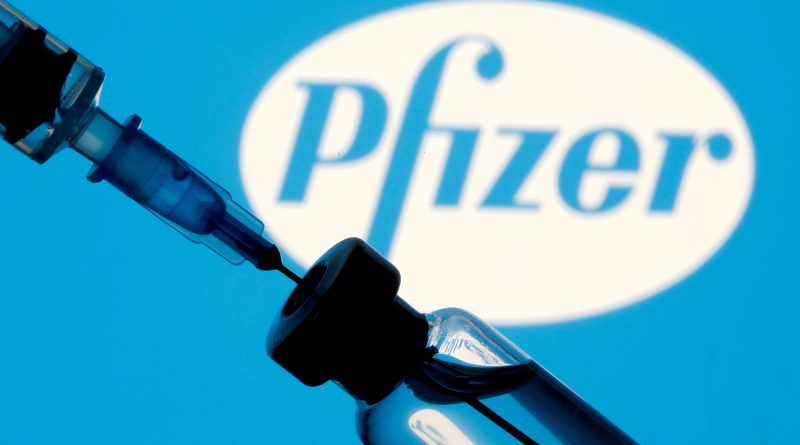Pfizer Strikes Landmark Deal With Trump Administration to Lower Drug Prices
In a move hailed as a turning point for U.S. healthcare, Pfizer agrees to align drug prices with global standards while supporting a new White House initiative to expand patient access.
Pfizer has become the first major pharmaceutical company to strike a deal with the Trump administration on prescription drug prices, marking a pivotal moment in U.S. healthcare policy and signaling a shift toward affordability for millions of patients. The agreement, announced from the Oval Office, is being described as both a business breakthrough and a political victory with international resonance.
At its core, the deal requires Pfizer to match prices for Medicaid drugs in the U.S. to those in other developed nations. For American patients, who historically pay nearly three times more than citizens in countries such as Germany, France, and Japan, this development represents a potential reduction in one of their largest healthcare expenses. President Donald Trump framed the decision as a step toward ending what he described as “subsidizing the healthcare of the rest of the world,” while stressing that affordability for Americans will remain a top priority.
The initiative goes beyond Medicaid. Under the agreement, Pfizer has pledged that all new drugs launched in the U.S. will be priced at a level comparable to international markets. The administration believes this will set a precedent, encouraging other pharmaceutical companies to follow suit and usher in a new era of pricing fairness. In July, Trump sent letters to 17 leading drugmakers demanding they adjust prices to global standards, and Pfizer’s move makes it the first to commit formally.
The White House also unveiled plans for TrumpRx, a direct-to-consumer online platform launching in 2026 that will allow Americans to purchase prescription drugs at transparent, internationally competitive prices. Pfizer will be among the first companies featured on the platform. By cutting out intermediaries, the initiative is expected to increase competition, simplify access, and build confidence among patients frustrated by opaque pricing.
Market reaction was immediate. Pfizer shares surged more than 6% following the announcement, while other pharmaceutical giants including Eli Lilly, Merck, Amgen, AbbVie, and GSK also gained, reflecting investor optimism that the deal offers stability and clarity for the industry. Analysts noted that companies would avoid steep tariffs previously threatened by the administration, creating relief in both U.S. and European markets. In London, pharmaceutical stocks rallied early Wednesday, signaling international approval of the move.
In a move hailed as a turning point for U.S. healthcare, Pfizer agrees to align drug prices with global standards while supporting a new White House initiative to expand patient access. This line, repeated by officials throughout the day, became the headline message, encapsulating the significance of the partnership and highlighting how business interests and public policy can converge for the benefit of citizens.
For Pfizer CEO Albert Bourla, who joined President Trump and Health Secretary Robert F. Kennedy Jr. at the announcement, the agreement demonstrates the company’s willingness to balance profitability with public responsibility. By leading the industry in reform, Pfizer positions itself as a partner in reshaping healthcare affordability. “This is a step toward fairness, sustainability, and innovation,” Bourla remarked, emphasizing the company’s commitment to continuing investment in research while lowering patient costs.
The global implications are significant. Pharmaceutical pricing has long been a contentious issue, with critics accusing U.S. patients of effectively subsidizing cheaper access abroad. By recalibrating pricing strategy, Pfizer is not only easing the burden on American households but also aligning the U.S. with international norms. For foreign governments and healthcare systems, this deal signals a willingness from Washington to tackle imbalances and create a more level playing field.
The deal also includes a three-year grace period, giving Pfizer time to restructure its operations while avoiding sudden shocks to its financial model. This measured approach allows for long-term stability and reassures investors that innovation pipelines will remain strong. For patients worldwide, it suggests that breakthroughs in medicine can be delivered with greater affordability and fairness, without undermining the incentives that drive research and development.
While challenges remain—including the need for other pharmaceutical companies to follow Pfizer’s lead—the framework established by this deal may prove transformative. The U.S. has one of the largest and most dynamic pharmaceutical markets, and changes made here inevitably influence pricing strategies worldwide. If replicated across the industry, this agreement could reduce disparities in drug costs, strengthen public trust, and broaden access to life-saving treatments.
In political terms, the Trump administration is celebrating the agreement as a decisive step in fulfilling promises to make healthcare more affordable. For international audiences, the move reflects a pragmatic approach to balancing economic nationalism with global cooperation, demonstrating how political leadership and corporate responsibility can align.
For Pfizer, the deal reinforces its role as a global leader in pharmaceuticals, setting an example for competitors and earning goodwill among policymakers and patients alike. For the U.S. administration, it is a symbolic and practical achievement, showing that negotiations with industry can yield tangible results. And for patients, it represents hope that the long-standing challenge of high drug prices may finally be addressed in a meaningful way.



